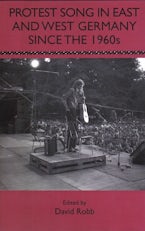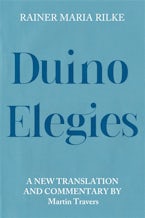
Title Details
384 Pages
22.8 x 15.2 cm
11 b/w, 30 line illus.
Series: Studies in German Literature Linguistics and Culture
Series Vol. Number:
215
Imprint: Camden House
Songs for a Revolution
The 1848 Protest Song Tradition in Germany
- Description
- Contents
- Author
- Reviews
Makes available twenty-two protest songs of the period up to and including the 1848 Revolution in Germany along with a reception history of the songs through their revival after 1945.
The socially volatile period of the Vormärz (1830-1848) and the 1848 Revolution in Germany produced a wealth of political protest song. Songs for a Revolution makes available twenty-two prominent protest songs from that time, both lyrics (in German and English) and melodies. It also chronicles the songs' reception: suppressed after the revolution, they fell into obscurity, despite intermittent revivals by the workers' movement and later in the Weimar Republic, until they were appropriated as democratic cultural heritage by the folk and political song movements of East and West Germany after 1945.
The songs reflect the new, oppositional political consciousness that emerged during the post-1830 period of restoration and led to the revolution. The book makes use of broadsides, songbooks, newspaper reports, and manuscripts to document the songs' transmission and shed light on the milieus in which they circulated. It also demonstrates how the appropriation of these songs by the German Liedermacher and folk scene shaped today's cultural memory of the 1848 period. It illuminates the functioning of political ideology in these reception processes, which in turn have given rise to myths that have influenced the discourse on the 1848 songs.
The socially volatile period of the Vormärz (1830-1848) and the 1848 Revolution in Germany produced a wealth of political protest song. Songs for a Revolution makes available twenty-two prominent protest songs from that time, both lyrics (in German and English) and melodies. It also chronicles the songs' reception: suppressed after the revolution, they fell into obscurity, despite intermittent revivals by the workers' movement and later in the Weimar Republic, until they were appropriated as democratic cultural heritage by the folk and political song movements of East and West Germany after 1945.
The songs reflect the new, oppositional political consciousness that emerged during the post-1830 period of restoration and led to the revolution. The book makes use of broadsides, songbooks, newspaper reports, and manuscripts to document the songs' transmission and shed light on the milieus in which they circulated. It also demonstrates how the appropriation of these songs by the German Liedermacher and folk scene shaped today's cultural memory of the 1848 period. It illuminates the functioning of political ideology in these reception processes, which in turn have given rise to myths that have influenced the discourse on the 1848 songs.
Preface
Introduction: The Emergence of Political Song 1830-48 - Eckhard John
PART I. Before 1848: The Vormärz
"Fürsten zum Land hinaus" ("Das deutsche Treibjagen")
"In dem Kerker saßen zu Frankfurt an dem Main" ("Die freie Republik")
"Sah ein Fürst ein Büchlein stehn" ("Freiheits-Büchlein")
"Ob Armut euer Los auch sei" ("Trotz alledem")
"Hier im Ort ist ein Gericht" ("Das Blutgericht")
"War wohl je ein Mensch so frech" ("Lied vom Bürgermeister Tschech")
"Freifrau von Droste-Vischering"
"Frisch auf, mein Volk, mit Trommelschlag" ("O wag' es doch nur einen Tag")
PART II. 1848-49
"In Kümmernis und Dunkelheit" ("Schwarz-Rot-Gold")
"Hecker! hoch Dein Name schalle"
"Seht, da steht der große Hecker" ("Das Guckkasten-Lied vom großen Hecker")
"Was zieht dort zur Brigittenau"
"Ausgelitten, ausgerungen"
"Ich bin ein guter Untertan" ("Der gute, stammelnde Untertan")
"Frisch auf zur Weise von Marseille" ("Reveille")
"Schlaf mein Kind, schlaf leis'" ("Badisches Wiegenlied")
PART III. 1848 in Memory
"Leute höret die Geschichte" ("Des Morgens in der vierten Stunde")
"So hab' ich es nach langen Jahren" ("Wohlgeboren")
"Verehrter Herr und König" ("Hungerlied")
"Zu Frankfurt an dem Main" ("Das Reden nimmt kein Ende")
"Mein Deutschland, strecke die Glieder"
"Das war 'ne heiße Märzenzeit" ("Trotz alledem, variiert")
Conclusion: The Making of Tradition. The Protest Songs of 1848 in the German Folk Revival - David Robb
Bibliography
Discography
Index
Introduction: The Emergence of Political Song 1830-48 - Eckhard John
PART I. Before 1848: The Vormärz
"Fürsten zum Land hinaus" ("Das deutsche Treibjagen")
"In dem Kerker saßen zu Frankfurt an dem Main" ("Die freie Republik")
"Sah ein Fürst ein Büchlein stehn" ("Freiheits-Büchlein")
"Ob Armut euer Los auch sei" ("Trotz alledem")
"Hier im Ort ist ein Gericht" ("Das Blutgericht")
"War wohl je ein Mensch so frech" ("Lied vom Bürgermeister Tschech")
"Freifrau von Droste-Vischering"
"Frisch auf, mein Volk, mit Trommelschlag" ("O wag' es doch nur einen Tag")
PART II. 1848-49
"In Kümmernis und Dunkelheit" ("Schwarz-Rot-Gold")
"Hecker! hoch Dein Name schalle"
"Seht, da steht der große Hecker" ("Das Guckkasten-Lied vom großen Hecker")
"Was zieht dort zur Brigittenau"
"Ausgelitten, ausgerungen"
"Ich bin ein guter Untertan" ("Der gute, stammelnde Untertan")
"Frisch auf zur Weise von Marseille" ("Reveille")
"Schlaf mein Kind, schlaf leis'" ("Badisches Wiegenlied")
PART III. 1848 in Memory
"Leute höret die Geschichte" ("Des Morgens in der vierten Stunde")
"So hab' ich es nach langen Jahren" ("Wohlgeboren")
"Verehrter Herr und König" ("Hungerlied")
"Zu Frankfurt an dem Main" ("Das Reden nimmt kein Ende")
"Mein Deutschland, strecke die Glieder"
"Das war 'ne heiße Märzenzeit" ("Trotz alledem, variiert")
Conclusion: The Making of Tradition. The Protest Songs of 1848 in the German Folk Revival - David Robb
Bibliography
Discography
Index
"An absorbing, even essential study for any scholar interested in historical or political song, irrespective of time and place. . . . The book is a delight. The . . . cumulative effect [of the case studies] is hugely rewarding: each new song enriches a complex, unfolding narrative of the intoxicating interplay of song and revolution. . . . Each case study is . . . a jewel in the hoard. The
translations are impeccable . . . . A really rather brilliant contribution to the study of historical song." Oskar Cox Jensen, POPULAR MUSIC
"Most timely . . . in [the present] moment of great political turmoil . . . . Makes an important contribution to the existing body of German and Europeanist folk-music scholarship . . . . This remarkable volume bears a particular relevance for scholars and music practitioners, while speaking to all those more broadly interested in the polyphonic trajectories of modern European cultural history." Felix Morgenstern, THE WORLD OF MUSIC
"[A] major achievement of [the book is that it] document[s] the legacy of 1848 in models of dissent both in the GDR and the "New Social movements" of the West since the 1960s. . . . [It] could be used as a songbook in its own right, but its scholarly importance lies in demonstrating in exemplary detail the role of cultural memory in the formation of social consciousness and in the continuing struggles for political legitimacy, emancipation and institutional change." Gilbert Carr, GERMANISTIK IN IRELAND
Hardcover
9781640140486
October 2020
$130.00 / £110.00
Ebook (EPDF)
9781787448629
October 2020
$29.95 / £24.99
Title Details
384 Pages
2.28 x 1.52 cm
11 b/w, 30 line illus.
Series: Studies in German Literature Linguistics and Culture
Series Vol. Number:
215
Imprint: Camden House













